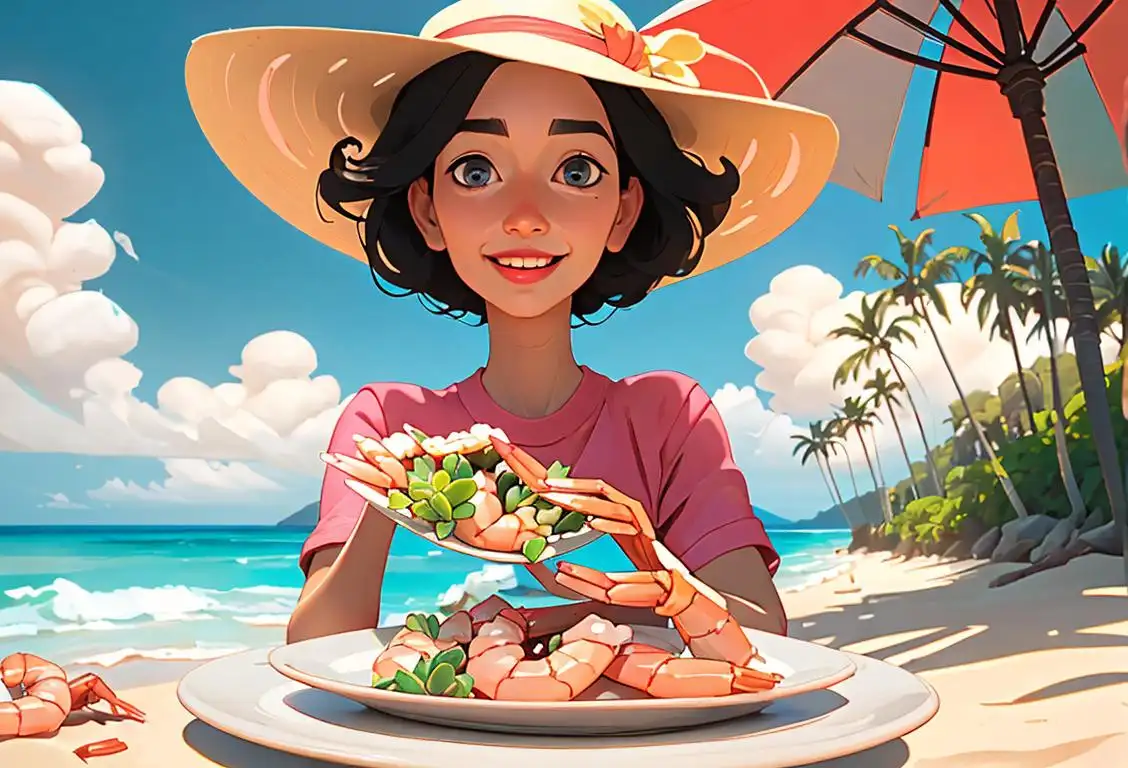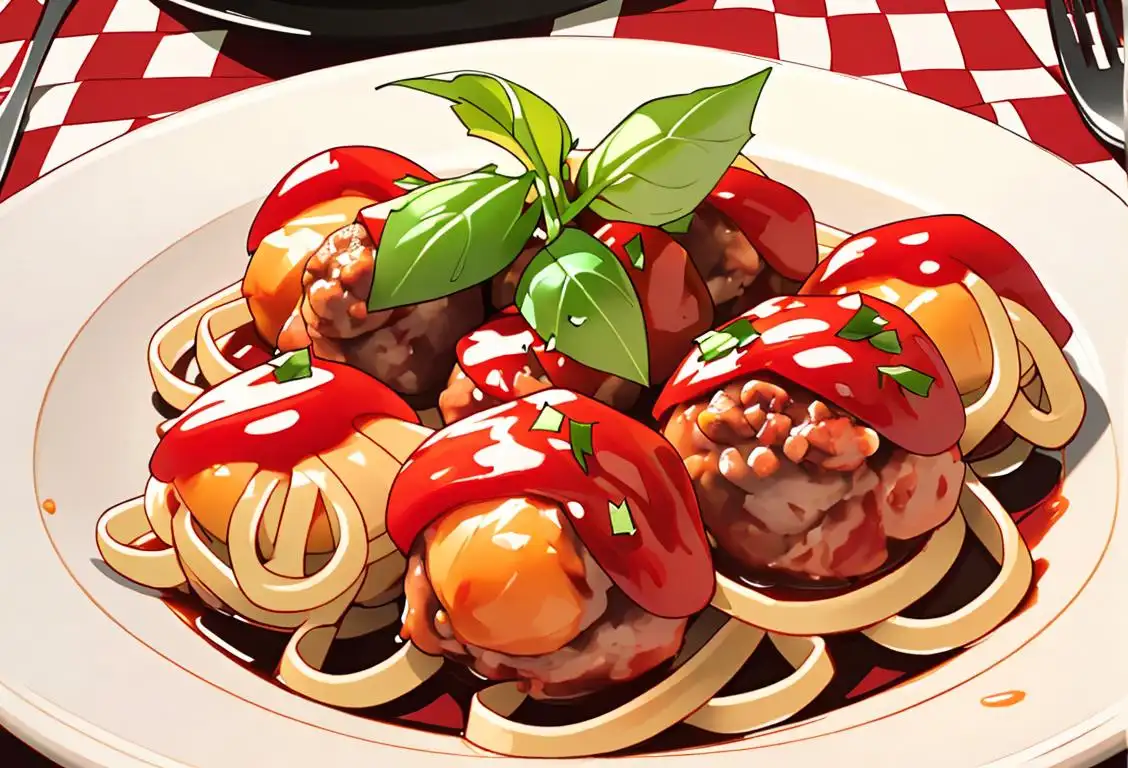National Shrimp Day

Are you a fan of scuttling sea critters that taste fantastic grilled, fried, or bathed in garlic butter? Well, buckle up because we’re about to embark on a deep dive into National Shrimp Day! We've detected an enormous 8435 mentions of this shellfish soiree online, with the most mentions occurring on 10th May 2018. Now, let’s not just tread water here, let’s dive right in!
When is Shrimp Day?
It's national shrimp day on the 10th May.
The History of National Shrimp Day
As with many good ideas, the origin of National Shrimp Day is shrouded in mystery, popping up like a sneaky shrimp in a rock pool. There are theories that it started as a marketing campaign for a seafood restaurant. Or perhaps it was born from the mind of a brave shrimp boat captain out on the high seas. The details may be murky, but there is one thing we know with glistening clarity: this day is all about paying homage to these tasty crustaceans.
Why Shrimps Are Worth Celebrating
Shrimps, besides being ludicrously tasty, are also enormously significant to our seas. They're vital to the food chain and support many marine ecosystems. Plus, they add a dash of flavor to millions of dishes around the world. Whether it's a classic shrimp cocktail, a spicy jambalaya, or a comforting bowl of shrimp bisque, there's little denying the culinary powerhouse that is the humble shrimp.
How to Celebrate National Shrimp Day
First and foremost, eat shrimp! Try a new recipe, visit your go-to seafood restaurant, or even learn about sustainable fishing efforts to ensure we can continue to celebrate shrimp for ages to come. Commemorating this day means not only munching on these marine morsels but also appreciating their ecological significance.
History behind the term 'Shrimp'
14th century
The Shellfish Connection
In the 14th century, the term 'shrimp' first emerged in the English language. It was derived from the Middle English word 'shrimpe,' which referred to a small, slender creature. At this time, the term was commonly used to describe any small, edible crustacean or shellfish.
17th century
From 'Shrimpe' to 'Shrimp'
By the 17th century, the term 'shrimpe' had evolved into the word 'shrimp' as we know it today. This shift in spelling coincided with the increasing popularity of the word and its recognition as a distinct type of seafood. Shrimp had become a staple ingredient in many cuisines, particularly in Europe and North America.
19th century
Shrimp Fishing and Shrimping Industry
During the 19th century, the shrimp fishing and shrimping industry saw significant growth and development. Shrimp became a valuable commercial product, leading to the establishment of specialized fishing techniques and the emergence of shrimp fisheries around the world. This period saw the rise of shrimping communities and the development of shrimp canning, which preserved the seafood for wider distribution.
20th century
Shrimp's Rising Popularity
In the 20th century, shrimp began to gain even more popularity globally. Increasing demand and advancements in transportation allowed for the wider availability of shrimp in both fresh and frozen forms. Shrimp dishes became increasingly diverse and influenced by various regional cuisines, such as the popular shrimp cocktail, shrimp scampi, and shrimp stir-fry.
Present Day
Shrimp, a Global Delicacy
Today, shrimp remains a beloved seafood delicacy enjoyed by people across the globe. It is a versatile ingredient used in various culinary preparations, from traditional dishes to modern fusion creations. The term 'shrimp' has become synonymous with its delectable taste, and it continues to play a significant role in the fishing industry and world cuisine.
Did you know?
Did you know? Shrimp are essential components of both freshwater and saltwater food chains. They serve as food for many aquatic creatures, and their feces and molts provide nutrients for other marine life.Tagged
awareness food fun rememberance national day seafoodFirst identified
29th April 2015Most mentioned on
10th May 2018Total mentions
8435Other days
Shrimp Day
Ginger Day
First Responders Day
Cheese Lovers Day
Peanut Butter And Jelly Day
Pumpkin Day
Agriculture Day
Armed Forces Day
Biscuit Day
Meatball Day








